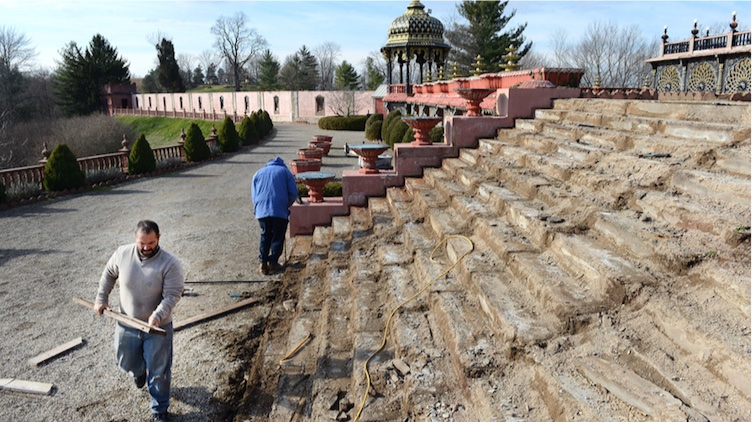Where Pipelines and Coal Mines Intersect: Under Hare Krishna Shrines
By Anya Litvak and Peter Smith | Сен 01, 2017

To get to the road where the natural gas pipeline is being built and the coal mine being dug below it, Gabriel Fried must first drive past the Palace of Gold.
In his silver SUV, he pulls out onto a brick road, laid by hand some 30 years ago by fellow devotees at New Vrindaban, a Hare Krishna community nestled incongruously into the hills of the West Virginia panhandle.
“People only imagine that you are perfect,” says a voice on the stereo before Mr. Fried hits the power button.
He drives past a large pond where likenesses of Radha-Krishna deities recline on a swan boat. “That’s our little aviary right there… where the peacocks hang out,” he says.
The car curves along a large ornate wall and past a parking lot laid from gravel that was donated by an oil and gas company.
“And this is the hill,” Mr. Fried says, slowing down next to a single-story home on his right and a green slope on the left. “We’ll be putting a temple there.”
For months, Mr. Fried — the community’s negotiator and guide for the extraction industries — has been trying to get pipelines and coal mines rerouted to avoid the many sacred spaces in the 2,500-acre community.
The small ranch-style house with an apple tree on the front lawn is a case in point.
Now, it’s the home of devotees Andy and Ruth Fraenkel, but 40 years ago, A.C. Bhaktivedanta Swami Prabhupada, founder of the International Society for Krishna Consciousness, taught early disciples under the apple tree. Krishna devotees regard anywhere he went as a venerated site, Mr. Fried says, and much of New Vrindaban bears his footprints.















